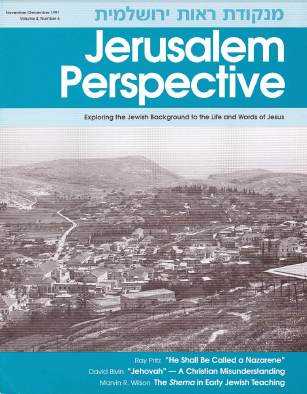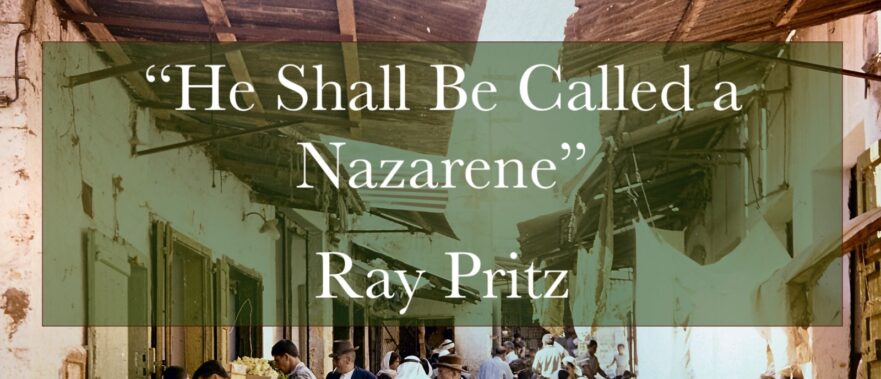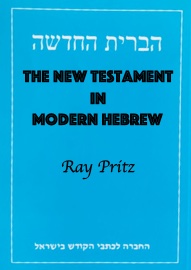The title “Nazarene” may have derived from the town of Nazareth where Jesus grew up, but this is not at all certain. Nazareth is never mentioned in rabbinic literature nor in any other writing outside the New Testament before its mention by the Hebrew poets of the seventh or eighth century. Its first post-New Testament appearance came with the discovery of an inscription listing the twenty-four priestly courses. This inscription, found in the summer of 1962 in a synagogue in Caesarea, has been dated to the third or fourth century.[9] The spelling of the name in the inscription is נצרת (nātz·RAT), the same as in the much later Hebrew poets.
Two Problems
The New Testament starting point for investigating the title Nazarene must be Matthew 2:23: “[Joseph] came and resided in a city called Nazareth so that what had been spoken through the prophets might be fulfilled: ‘He shall be called a Nazarene.'”
This was one of the most difficult verses faced by the editorial committee of the annotated edition of the United Bible Societies’ Modern Hebrew New Testament. The main problem is that nowhere in the extant body of Scripture do we find the statement which Matthew seems to quote from the Prophets.
Premium Members and Friends of JP must be signed in to view this content.
If you are not a Premium Member or Friend, please consider registering. Prices start at $5/month if paid annually, with other options for monthly and quarterly and more: Sign Up For Premium

- [1] Babylonian Talmud, Sanhedrin 43a, 103a, 107b; Sotah 47a; Avodah Zarah 16b, 17a. ↩
- [2] Babylonian Talmud, Avodah Zarah 6a and Ta’anit 27b. ↩
- [3] 2 Kings 17:9; 18:8; Ps. 25:10; 119:2; Jer. 4:16; 31:6. ↩
- [4] Matt 1:22-23; 2:5-6, 15, 17-18. ↩
- [5] See G. F. Moore in Jackson-Lake, The Beginnings of Christianity, The Acts of the Apostles (repr. Grand Rapids, MI, 1979), 1:427; and F. C. Burkitt, Syriac Forms of New Testament Proper Names (London, 1912), 28-30. ↩
- [6] Lamentations Rabbah 1:51; Tanhuma, Vayekhi 10, 110; Genesis Rabbah 3:4, 97:9, 99:8; Ruth Rabbah 7:2; Song of Songs Rabbah VI, 10, 6; Shokher Tov 21, 72. ↩
- [7] Babylonian Talmud, Sanhedrin 43a. The term baraita refers to any of the halachot or sayings not included in the Mishnah of Rabbi Yehudah ha-Nasi, that is, sayings that predate 230 A.D. ↩
- [8] See Acts 3:24; Babylonian Talmud, Sanhedrin 99a. ↩
- [9] Michael Avi-Yonah, “An Inscription from Caesarea about the Twenty-four Priestly Courses,” Eretz-Israel 7 (1964): 24-28 (Hebrew). ↩




